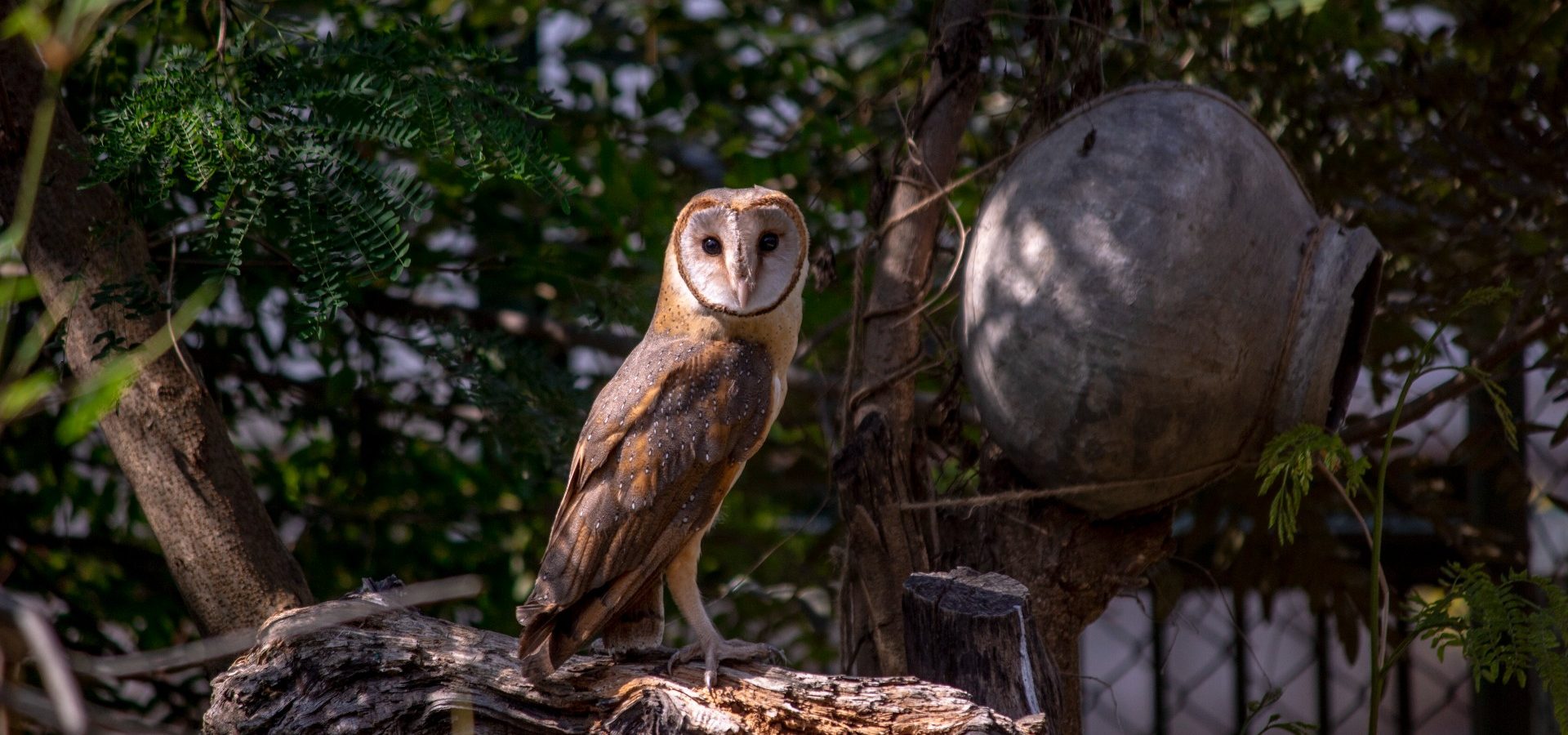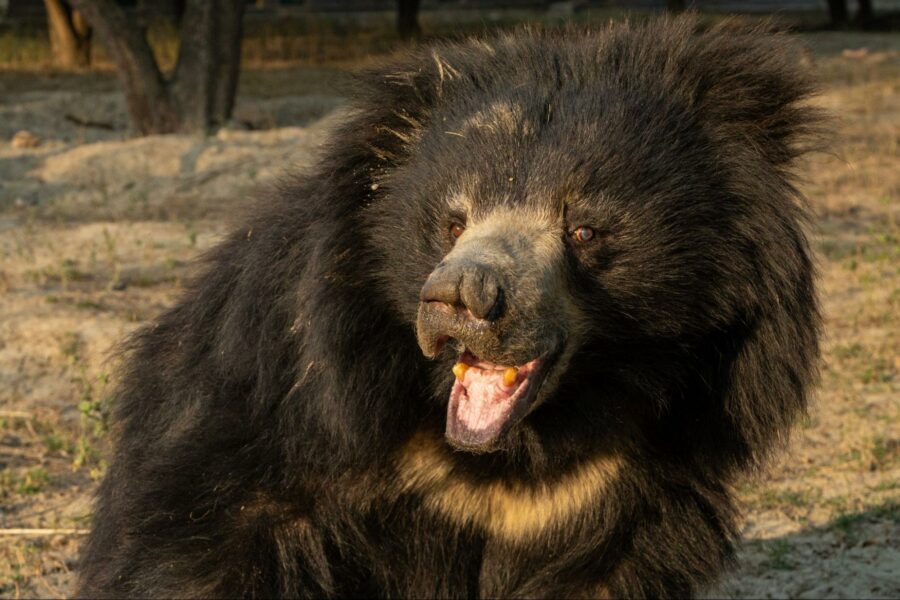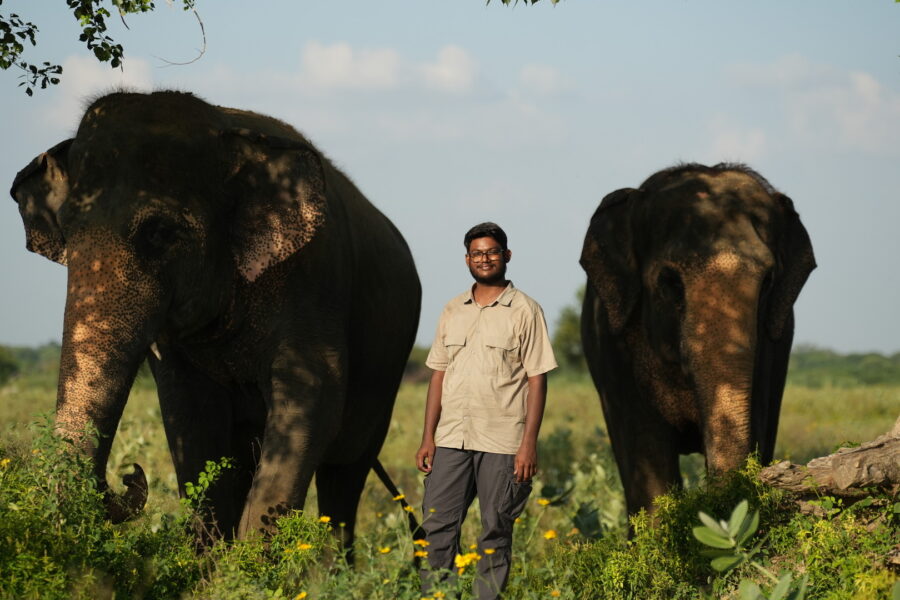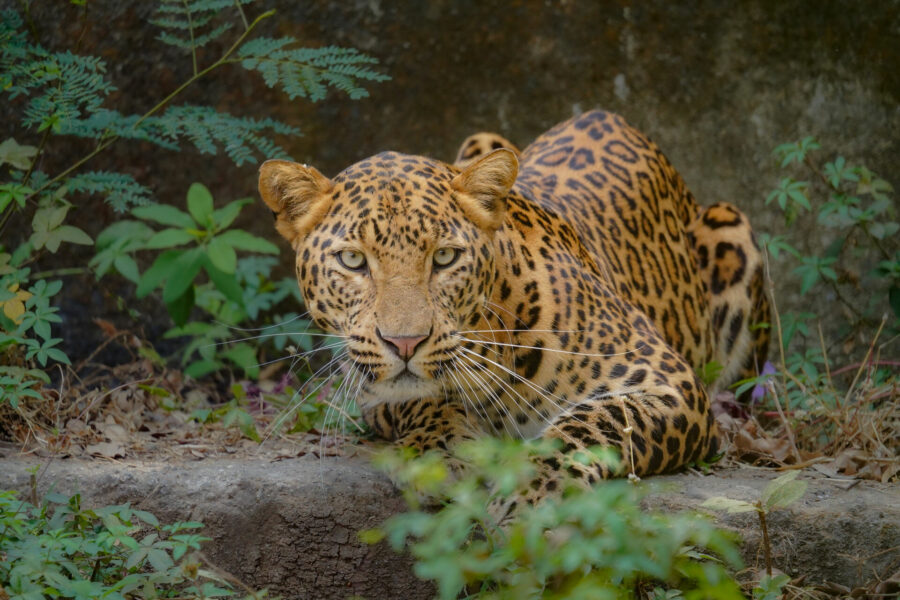The Gujarat Forest Department and the Wildlife SOS Rapid Response Unit, jointly run with the GSPCA (Gujarat Society for Prevention of Cruelty to Animals), landed upon a golden opportunity to uncover illegal wildlife trade. In a covert operation, the team seized a Barn owl from wildlife traffickers in Kaprada village located in the Valsad district of Gujarat.
In a tense operation, the Wildlife SOS-GSPCA team travelled to Kaprada village, located approximately 220 km from Vadodara, to assist the forest department in nabbing the racketeers. The whole operation was preceded by weeks of surveillance and gathering intel about the sellers by the Wildlife SOS-GSPCA team. The team laid out a plan to pose as potential buyers and lure the poachers in possession of the owl. However, time was of the essence and the slightest delay would have meant losing the owl to genuine buyers.
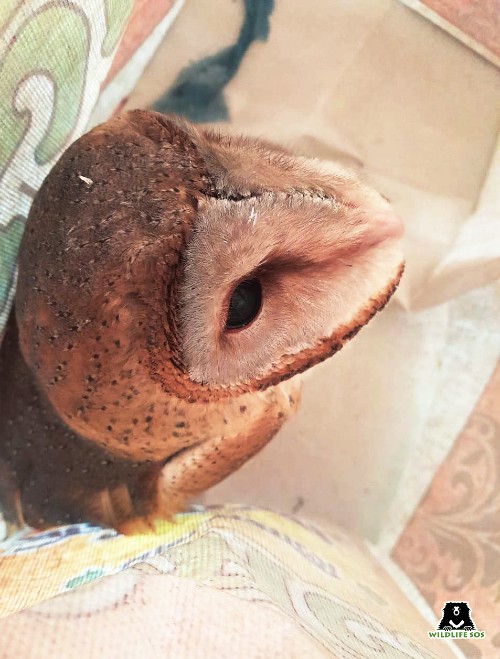
So, without wasting any time, the team eventually zeroed in on their location and launched an undercover operation. By sending dummy customers in, the perpetrators were caught with the help of the forest department. The owl was kept in the custody of the forest department before being released back into the wild.
According to the Range Forest Officer of the Gujarat Forest Department (Valsad), a team consisting of 25-30 members were involved in conducting the raid. The offenders originally belonged to another village from where they brought the owl. This led the forest department to also conduct an investigation in the village where the traffickers hailed from. Usually these traffickers keep changing their location, and this is why the team had to wait for at least two days to catch them. Two offenders have been arrested and a case has been registered against them.
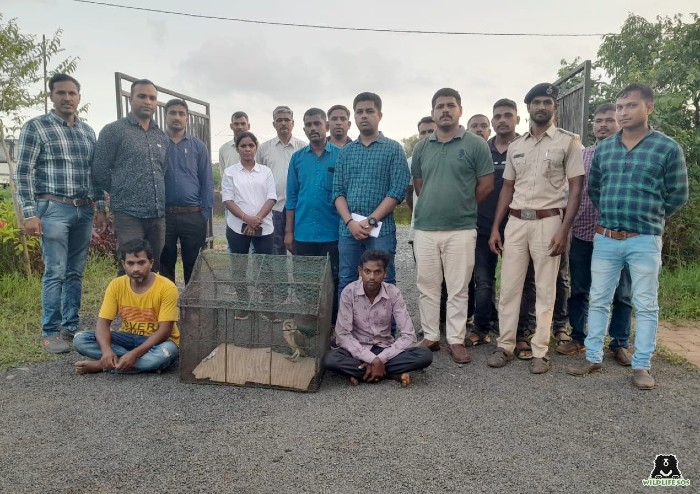
Poaching and possession of protected wildlife and illegal trade of body parts is a non-bailable criminal offence. If convicted, the accused could be jailed for up to 7 years. The Barn owl (Tyto alba) is a widely distributed owl species and is commonly found in the Indian subcontinent. They generally rest in unused burrows, tree cavities or terraces and prey on rodents, small mammals and birds. Owls are considered to be friends of farmers as they keep a check on the rodent population. In India, owls are protected under the Wildlife (Protection) Act, 1972.
Most of the animals that become a victim of wildlife trafficking are traded due to demands which are propelled by superstitions and irrational rituals. Barn owls are no exceptions, and they too fall prey to occult practices and ritualistic sacrifices with the hope that this will bring good luck and wealth to people. These beliefs, however, are based on unfounded myths and not facts.
Owls are mired in superstitions, some of which stem from Hindu mythology. A Barn owl is the vehicle or vaahan of goddess Lakshmi who is associated with wealth and prosperity. But some believe the Barn owl to symbolise poverty and strife. Such ignorant beliefs and myths lead to an increase in trafficking, poaching, and harming of owls during the festival of Diwali. Occultists carry out merciless slaughter of these birds as part of ritualistic sacrifices.
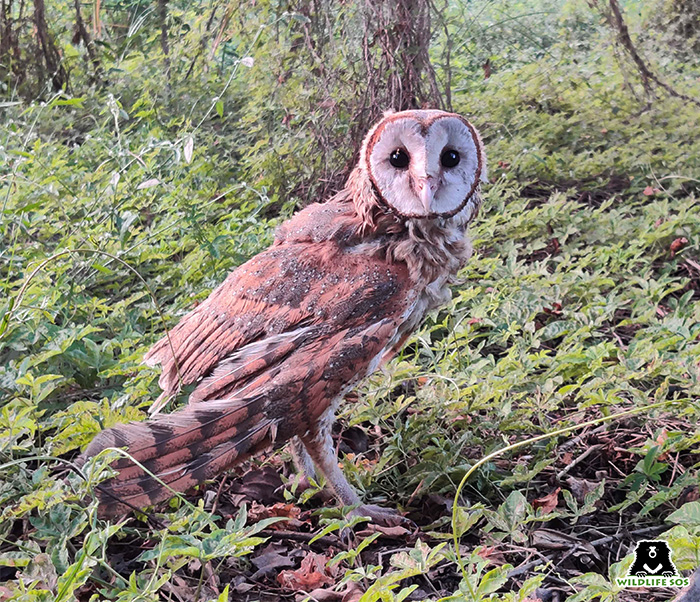
Every year, the Wildlife SOS-GSPCA team in Vadodara assists the forest department to seize owls meant to be sacrificed for such rituals. Last year, the team saved a Barn owl from a ritualistic sacrifice outside a temple. The bird was found with a part of its left wing cut off. The wings or tufts of owls are assumed to possess magical powers and thus are often used in occult practices. After undergoing treatment, the owl was released back into its natural habitat.
While the exact number of owls poached every year is still not known, we do know that the most common owls poached in India are the Indian (Rock) Eagle owl, Barn owl, Brown fish owl, Dusky eagle owl, Indian Scops owl and Mottled wood owl. In 2020, the Wildlife SOS-GSPCA Rapid Response Unit rescued eight Indian Eagle owls from smugglers suspected to be part of Gujarat’s illegal wildlife trading community.
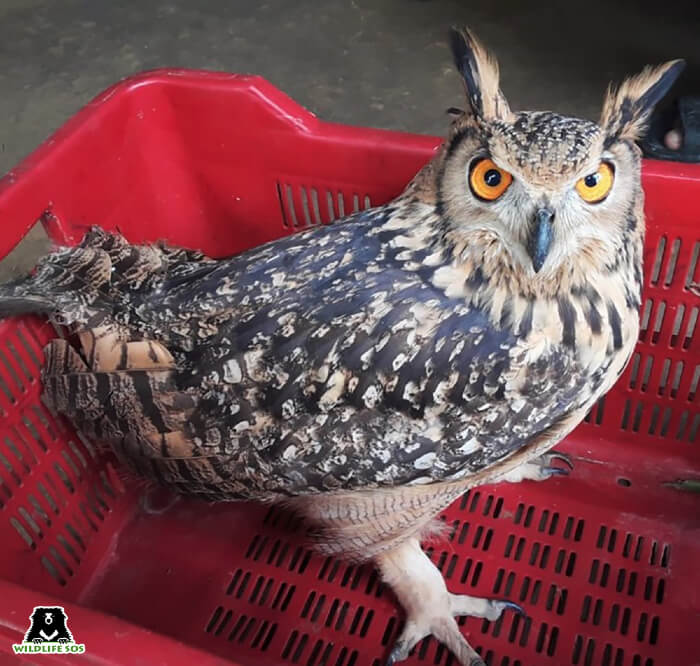
Wildlife SOS works relentlessly through its anti-poaching unit ‘Forest Watch’ to curb the poaching and trafficking of wild animals. We assist state forest departments and enforcement agencies to bust wildlife trafficking rackets, and retrieve animals and other wildlife contrabands. You can also play a huge role in curbing illegal wildlife trade. Become a monthly donor for Wildlife SOS and support our work, so that we can save the lives of these animals who deserve to live in the wild.

